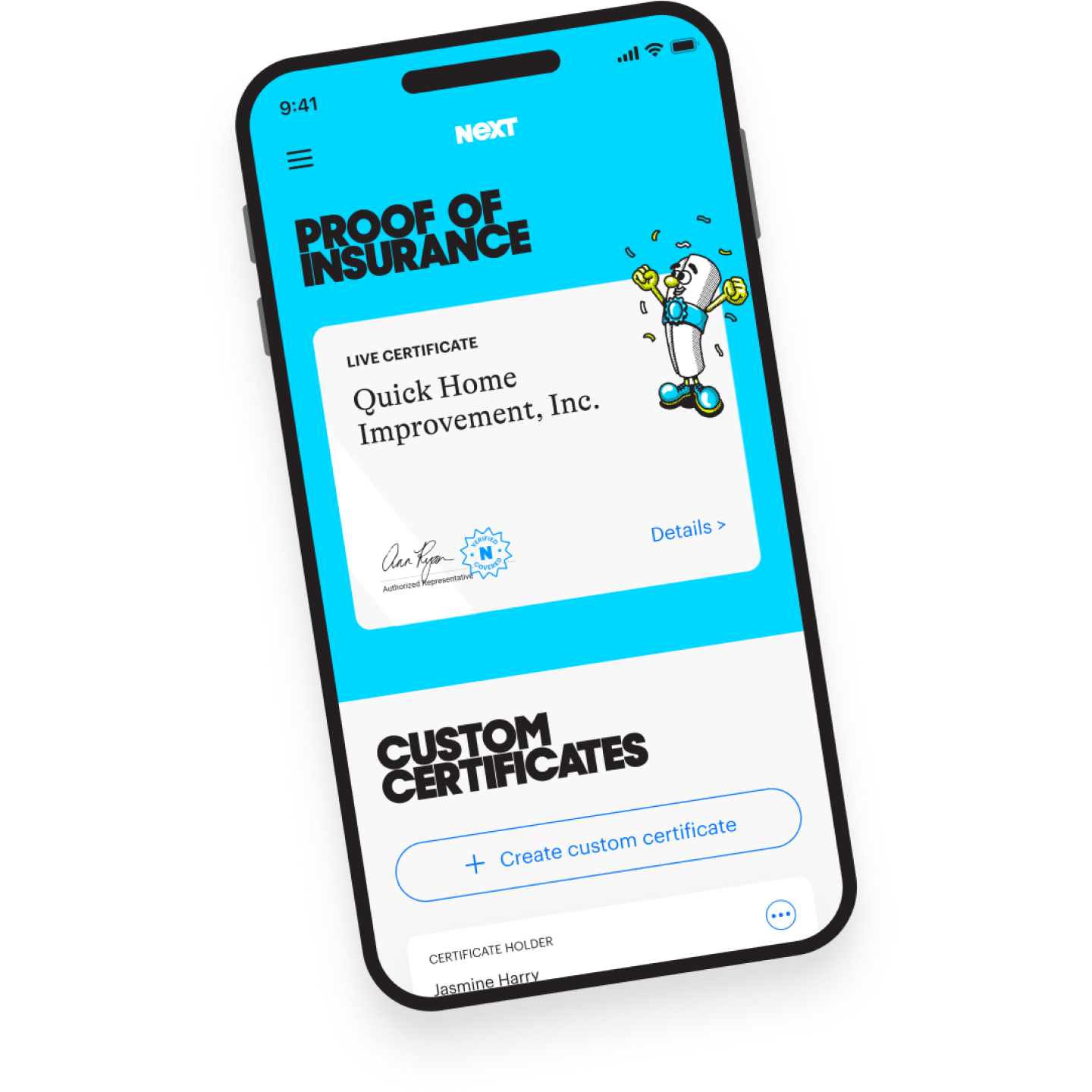Cyber insurance for small business can help protect you from:
Data breaches
Criminals can gain access to sensitive business or customer data.
Ransomware
Data is held hostage by bad actors demanding payment for its release.
Cyber attacks
Computer viruses or denial of service attacks can take down computer systems and halt productivity.
Wire fraud
Funds transfer losses from a failure in your security or social engineering.
Hardware failures
Faulty hardware from malware or viruses can take down computers or networks.
Learn more about Cyber insurance:

What is cyber insurance?
Cyber insurance can help small businesses prevent, assess and quickly respond to many technology-based problems, including:
- Compromised IT infrastructure
- Systems failure events
- Cyber attacks
- Data breaches
- And more
Risks to your cyber security can come from many places, including your personal communications (like email) and professional networks, or vendors, partners and employees.
Prevention is key, but fast response time in the event of an incident can help mitigate damage and loss to your business.
Cyber liability insurance can help protect your business and provide:
- A suite of free cyber security tools to help monitor and protect your communication and transactions.
- 24/7 expert response to help you immediately after a cyber attack.
- Protection for physical hardware in the event of a virus or malware.
- Financial help after phishing scams, data breaches and ransomware attacks.
- Recovery or replacement funds lost due to wire fraud.
What does cyber insurance cover?
Even with vigilant monitoring, staff training and best practices in place, a cyber attack can slow or stop your small business. Cyber liability insurance can help cover:
Damaged computer replacement
Cyber insurance can help replace computer systems if malware or viruses render your hardware unusable.
Phishing and data breach costs
Insurance can help cover the costs if a hacker gains access to an employee’s email or breaches your network. This could include expenses such as:
- Legal fees
- Forensics and PR costs following a breach
- Researching and notifying customers
- Credit monitoring
- Regulatory penalties resulting from the breach
- Other miscellaneous incident response tasks
Ransomware: the expense and negotiations of an attack
A ransomware attack occurs when data is held hostage by bad actors demanding payment for its release. It can mean a total interruption of your company’s computer systems, permanent loss of data, or reputational damage to your brand. If a security failure disrupts your business, you may qualify for lost income and expenses under your insurance policy.
In the event your organization does pay a ransom, a trained response team can help negotiate a significant reduction in the demand.
Lost funds from wire fraud
Imagine a funds request sent to accounting from a trusted employee or vendor. The funds are transferred — and only later it’s discovered that the request was not authentic. On your own, you shoulder the loss.
Cyber insurance can help monitor your computer systems to prevent fraud and also help you recover if you suffer a loss.
Who needs cyber security insurance?
Any small business that handles digital financial transactions and sensitive data could be targeted by cyber criminals. This is especially true if your business collects, stores or processes:
- Customer contact information.
- Health or legal records.
- Private financial data like credit card numbers or bank account records.
Some industries most likely to benefit from cyber insurance include:
Financial services
Social security numbers and personal customer account numbers and income information in your computer systems could make you vulnerable to digital criminal activity.
Legal services
Private client information and case details could be valuable assets for cyber criminals.
Real estate
Funds in escrow and large digital transfers of cash could leave you and your clients at risk.
Retail and e-commerce
Online stores or brick-and-mortar business owners are often targeted by hackers and cyber criminals.
Therapists and healthcare
Private health information needs to be kept private. Cyber security can help keep it that way.
Manufacturing
Networked data systems that control workflow, monitor safety and track inventory could compromise production and human safety if tampered with by external actors.
What’s the benefit of cyber insurance for small businesses?
Cyber insurance can help protect the value of your business from digital events or tampering, including coverage for financial loss and damage up to $15 million.* It can also:
- Help you monitor and protect your business to prevent incidents with cyber security tools.
- Offer you help navigating cyber incidents like hacker attacks, denial of service attacks, ransomware attacks and technology failures.
- Protect your business from privacy violations after an incident and decisions made by company executives.
- In the event of a virus, a hacker attack or a technology failure, support is available 24/7 to help you quickly respond.
What’s not covered?
Cyber security insurance can be a great help, but it does not cover everything. Some things not covered by your policy include:
- Intentional wrongdoing and illegal activity.
- Damage to another person’s property.
- Medical payments.
- Accusations of libel or slander (personal injury or reputational harm).
How much does cyber insurance cost?
Cyber insurance can be very affordable. The price of your policy depends on a variety of factors, like your company’s network security, the type of sensitive data you collect and your claims history.
Cyber insurance can be customized for any organization’s risk exposure and business needs. Some factors that influence the price you’ll pay include:
- Your industry
- Your business operations
- Your digital security and monitoring practices
- The size of your business
- Where you do business
- Your business needs and how much coverage you want to purchase
- Policy limits
How do I get cyber security insurance for my small business?
Cyber liability insurance is important. And you can purchase an affordable policy through Coalition, a trusted NEXT partner.
Coalition will ask you some basic questions about your business and operations, including:
- Your industry
- Where you do business
- How many years you’ve owned the business
- Number of employees
- Expected annual revenue
- Recent insurance and claims history
After that, you’ll have a customized insurance quote for cyber liability to fit your business and needs.
What other types of business insurance do I need?
Cyber liability can provide important financial protection for your business after a digital incident, but it usually doesn’t protect businesses from all the risks they face.
It's important to consider other business insurance options to help you create your risk management plan. Other types of liability coverage include:
General liability coverage can help protect you if customers, contractors or anyone who’s not an employee gets hurt and your business is at fault.
Professional liability insurance can help protect your business from losses after a professional mistake.
Most states require workers’ compensation if you have employees. It can help cover medical expenses and lost wages after an employee’s workplace accident.
Commercial property insurance can help pay for a replacement or repair for damaged business property.
Depending on your industry, you might also benefit from product liability insurance (retail) or liquor liability insurance (food service).
Cyber insurance FAQ
If you still have questions, our licensed insurance advisors are standing by to help.
Is cyber security insurance required by law?
Depending on where you are located, it could be. Regulatory frameworks like the General Data Protection Regulation (GDPR) and California Consumer Privacy Act (CCPA) require organizations to have high standards of data privacy.
Does cyber insurance cover data breach claims?
Yes, it can cover the costs of a data breach or phishing incident if a hacker gains access to an employee’s email or creeps into your network. This could include expenses such as:
- Legal fees
- Forensics and PR costs following a breach
- Researching and notifying customers
- Credit monitoring
- Regulatory penalties resulting from the breach
- Other miscellaneous incident response tasks
Will cyber security cover the cost of ransom payments if I get hacked?
In the event a hacker encrypts your business data and won’t unlock it until you pay a ransom, cyber liability insurance can help cover the cost to restore your data.
A ransomware attack can mean a total interruption of your company’s computer systems, permanent loss of data or reputational damage to your brand. If a security failure such as a Denial of Service attack (DoS) disrupts your business, you may qualify for lost income and expenses under your insurance policy.
How much cyber security coverage do I need?
Small business insurance isn’t one-size-fits-all. Each business is unique and has different insurance needs.
The coverage you need depends on several factors, including:
- The type of work you do.
- How many employees and subcontractors you have.
- The level of risk your company faces.
- The state where you work.
Is cyber security insurance tax deductible?
Cyber liability insurance premiums can typically be deducted from your taxes. It’s important to consult with a licensed accounting professional to make sure you qualify.
The IRS categorizes payments you make for this type of insurance to be an “ordinary and necessary” business expense. Be sure to keep a file of how much you pay every year for your policy.
NEXT Insurance reviews
Ease of quoting.
Very user friendly website.
Linda M.
Mexsu Investments
5 stars all the way!!
Roberto B.
NA
NA
Sandra P.
Easy, adfordable, great app
Next is an amazing company
Karen M.
Business Ins
Great fast service
Yuri F.
Great rates
Same coverage better rates.
Peter C.
Getting Insured
The process was simple and easy to navigate and now I’m covered.
Christopher S.
Simple and easy
Everything is very straightforward and easy to understand. Great rates and user friendly.
Jessica K.
agent
quick easy affordable
James S.
Life Insurance Producer
Sign up was simple, costs is affordable with great coverage per occurrence. I got several quotes that i didn't like until discovering Next. Thanks so much Next !!!
Leonard S.













